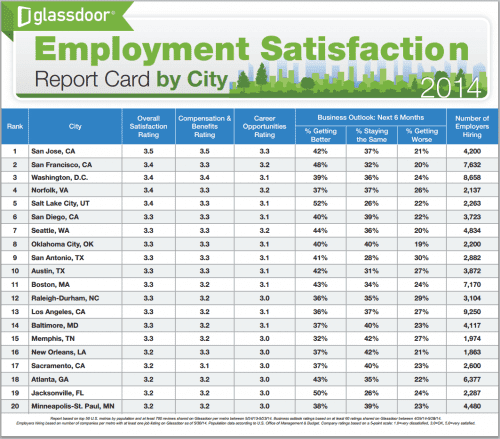So, you may or may not be aware that I spend a lot of time, um, researching, on Buzzfeed. Something that has stuck out to me lately is the way they use employees to humblebrag about their work environment. In June, Buzzfeed employee Justin accidentally sent an e-mail about running late because the hot water in his apartment building wasn’t working to the whole Buzzfeed community. Rather than being embarrassing and disastrous, the result was embarrassing and hilarious.
Another example of Buzzfeed employees at “work” is this post about a couple girls who decided to try their hand at Tarot Card readings. Two of them drew cards and answered questions based on what they assumed the cards meant. A third woman with actual experience with Tarot readings then chimed in. It’s pretty hysterical, and worth a read if you have some time.
What do these examples of employee tomfoolery have to do with my business, you may ask. Well, there’s a lesson in employee satisfaction within these Buzzfeed articles. Here’s the breakdown on what satisfied employees can do for your business:
1) Happiness Factor: If you take a business management class (or, a marketing class in my case), you will probably be told that the key to customer satisfaction is employee satisfaction. This isn’t rocket science, I suppose: the faces of your employees equals the face of your business. Ideally, the face of your business is a happy one. On the flip side, if the face of your business has a rather sour disposition, people are less inclined to come back as repeat customers.
This Business Insider list shows the “Happiest Companies” in America this year. Curious about how one quantifies happiness, I looked into their methodology. The components of happiness in a job include: cash compensation (i.e. salary, bonuses, commissions, tips), stress level, flexibility around work schedule, and meaningfulness of the job (i.e. are employees made to feel that their job is important?).
So, while you may not be able to increase salaries or give bonuses, you CAN make changes to the work environment, and turn it into a place that employees love. Remember, you want the face of your business to smile (like it means it).

Cities with the happiest employees
http://www.businessinsider.com/happiest-companies-in-america-2014-4
2) Engagement Encouragement The example of Buzzfeed may be a bit extreme in terms of goofiness, but it shows that you can encourage employees to showcase your business. Justin was able to show off the Buzzfeed work environment by posting the various responses to his e-mail, including one from the CEO. While reading the post, I was thinking, “Man, these people are so clever! It would be so fun to work with them. I think I love Buzzfeed EVEN MORE NOW!”
Encouraging employees to engage in the business in a fun way has a few benefits: self-promotion (in a subtle way), increased productivity, incentive to go above and beyond the call of duty, and overall better quality of work.
This article from Forbes describes the relationship between employee satisfaction and business performance in greater (and more technical) detail. There is also this flow chart:

http://www.forbes.com/sites/kevinkruse/2014/01/07/employee-engagement-the-wonder-drug-for-customer-satisfaction/
3) “We’ve Got Your Back” This idea goes along with encouragement. If, for instance, the girls doing Tarot readings were somehow disciplined for their post, they a) would lose incentive to engage with the company and b) wouldn’t be convinced that Buzzfeed had their backs.
When a business or boss tells their employees “Yes, please go ahead and do X. That would be great”, following through and standing behind employees who do X is important. Unless they are completely missing the point of the task or botching it, punishing them will generate feelings of betrayal, and all incentive they have to do X. And perhaps any other future task that’s asked of them. Basically, it’s all a downward spiral. Don’t create trust issues with your employees.
Of course, I consider myself a satisfied employee here at Breaking Even… which may have something to do with Nicole indulging my Buzzfeed habit.



